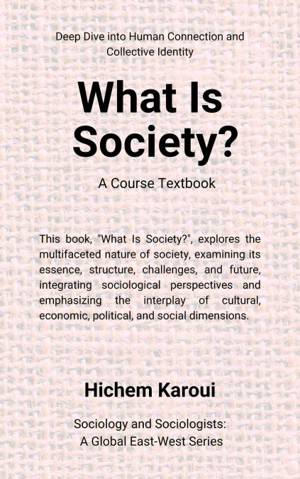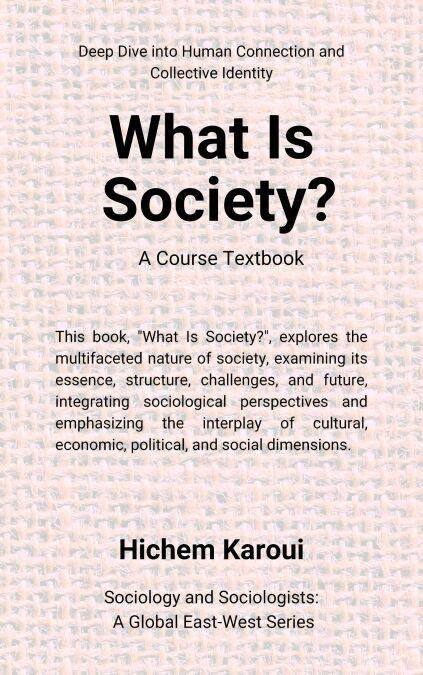
- Afhalen na 1 uur in een winkel met voorraad
- Gratis thuislevering in België vanaf € 30
- Ruim aanbod met 7 miljoen producten
- Afhalen na 1 uur in een winkel met voorraad
- Gratis thuislevering in België vanaf € 30
- Ruim aanbod met 7 miljoen producten
Omschrijving
Hichem Karoui explores the complex nature of society and the various elements that constitute it. It delves into sociological definitions, historical views, theoretical foundations, and cultural constructs that shape human connections and collective identities. It examines the essence of society, its structure, challenges, and future, integrating sociological perspectives and emphasizing the interplay of cultural, economic, political, and social dimensions.
Structured like a course of 14 lessons, with an introduction and a conclusion, the text is organized into chapters with titles suggesting a progressive exploration of sociological concepts ("Introduction: What is Society?", "The Essence of Society," "The Structure of Society," etc.) Each chapter aims to provide insights into how societies function, evolve, and respond to challenges, ultimately reflecting on our shared human experience. Each chapter contains a summary, questions, and answers guidelines, and a list of references for further reading. It strongly suggests a structured learning progression typical of a course textbook. While it might contain informative elements useful for a manual, the overall organization and thematic development point toward a pedagogical purpose.
Key Takeaways
The book delves into the definition and dimensions of society, analyzing its cultural, economic, political, and social aspects. The introduction hints at exploring "what constitutes society," framing it as a complex tapestry of human existence. It traces the history of human connection, from kinship to complex societies. Key sociological perspectives—functionalism, conflict theory, symbolic interactionism, and social constructivism—are explored. The role of cultural constructs, norms, and values in shaping social interactions is examined. The text addresses challenges of inequality, stratification, and societal tensions, including those arising from the digital age. Social cohesion, trust, and strategies for fostering inclusivity are discussed. The inclusion of chapters on globalization, digital challenges, and environmental tensions highlights the dynamic and evolving nature of societal structures in the modern era. The book concludes by reflecting on society's dynamic evolution and the importance of collective action.
Specificaties
Betrokkenen
- Auteur(s):
- Uitgeverij:
Inhoud
- Taal:
- Engels
- Reeks:
Eigenschappen
- Productcode (EAN):
- 9798227457622
- Verschijningsdatum:
- 8/11/2024
- Uitvoering:
- E-book
- Beveiligd met:
- Adobe DRM
- Formaat:
- ePub

Alleen bij Standaard Boekhandel
Beoordelingen
We publiceren alleen reviews die voldoen aan de voorwaarden voor reviews. Bekijk onze voorwaarden voor reviews.









